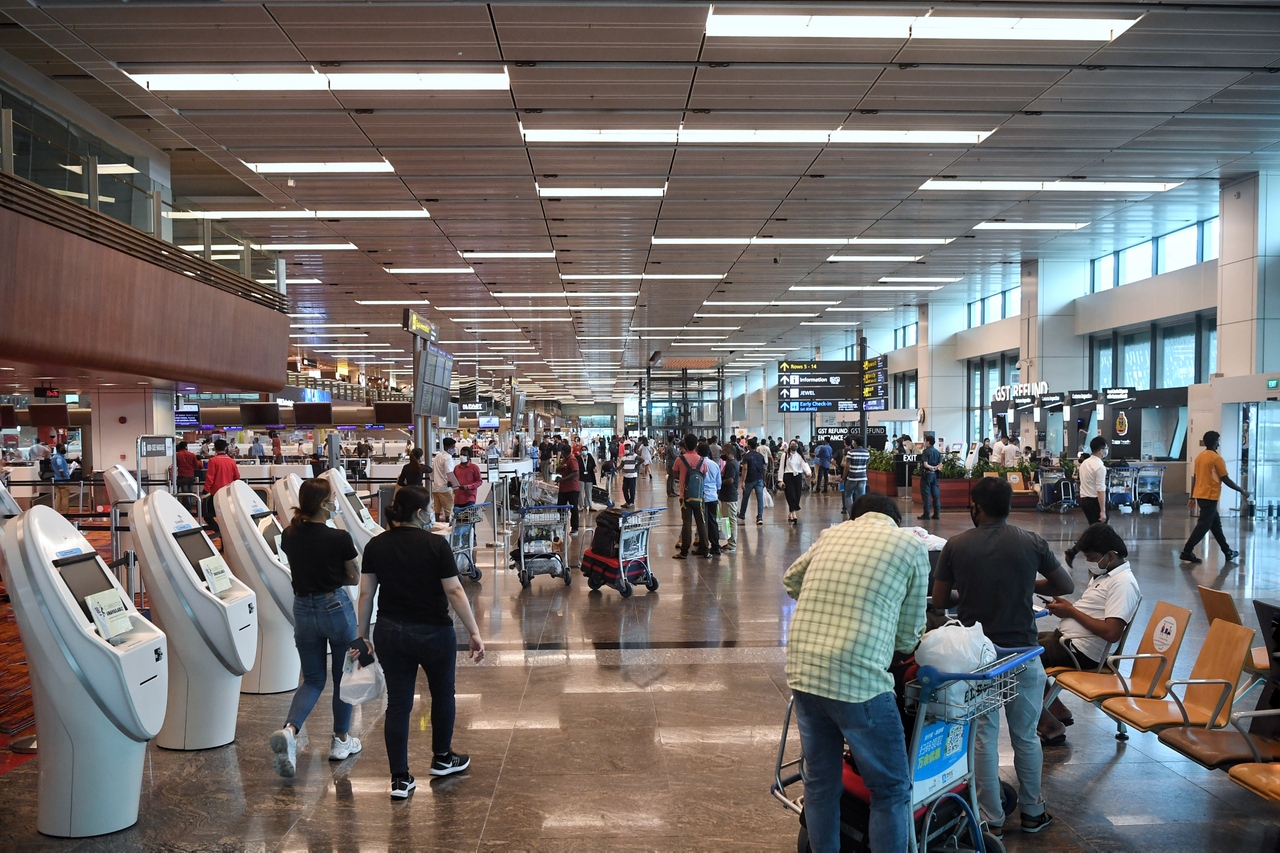Over 18,200 visitors from low-risk regions entered Singapore under travel pass scheme since September
Sign up now: Get ST's newsletters delivered to your inbox

The ATP scheme allows for all forms of short-term travel, including leisure travel.
ST PHOTO: KUA CHEE SIONG
Follow topic:
SINGAPORE - More than 18,200 travellers have entered Singapore under the air travel pass (ATP) scheme since the Republic unilaterally opened its borders to regions with low Covid-19 infection rates in September last year.
Replying to queries, the Civil Aviation Authority of Singapore said on Tuesday (April 13) that as at April 8, the bulk of these short-term visitors, who can come to Singapore without restrictions on their itineraries or the need to serve stay-home notice, were from China. There were about 12,800 such visitors, or 70 per cent of the total number.
About 2,400 visitors were from Australia and around 300 from New Zealand. About 800 visitors came from Brunei and another 800 from Taiwan.
In addition, about 1,100 visitors arrived from Vietnam, but a spike in Covid-19 cases there led to the suspension of ATP applications from the country on Feb 9.
The ATP scheme allows for all forms of short-term travel, including leisure travel.
This is in contrast with reciprocal green lane arrangements, which are usually only for essential business and official travel.
The scheme was first opened to travellers from Brunei and New Zealand in September. Announcing it the month before, Transport Minister Ong Ye Kung said then that the unilateral reopening of Singapore's borders to the two countries was a "small, cautious" step that could resuscitate Changi Airport.
It was also an invitation to the world and signalled that Singapore is open for business, Mr Ong said. Singapore later lifted border restrictions for visitors from Australia - excluding Victoria state - and Vietnam in October.
The borders were opened up to travellers from Victoria state and China a month later, and visitors from Taiwan were allowed to apply for an ATP from December onward.
Travellers entering Singapore on an ATP must comply with a host of conditions.
The pass is only valid for single entry within a week from the travellers' intended date of entry into Singapore. Upon arrival, they must take a Covid-19 test and self-isolate in non-residential accommodation, such as a hotel. If they test negative, they are allowed to go about their activities, but must use the TraceTogether application during their stay here.
These visitors are also responsible for their own medical bills if they require treatment for Covid-19. Since February, they have also been required to buy travel insurance with a minimum coverage of S$30,000 to pay for any medical expenses related to Covid-19.
In an interview with Money FM 89.3 in March, Mr Ong said the unilateral opening of Singapore's borders has not led to community infections here.
He also noted that the passenger volume at Changi Airport was only at 2.6 per cent of the levels seen before the Covid-19 pandemic. According to statistics on Changi Airport's website, about 714,500 passengers moved through the airport between September last year and February this year.

